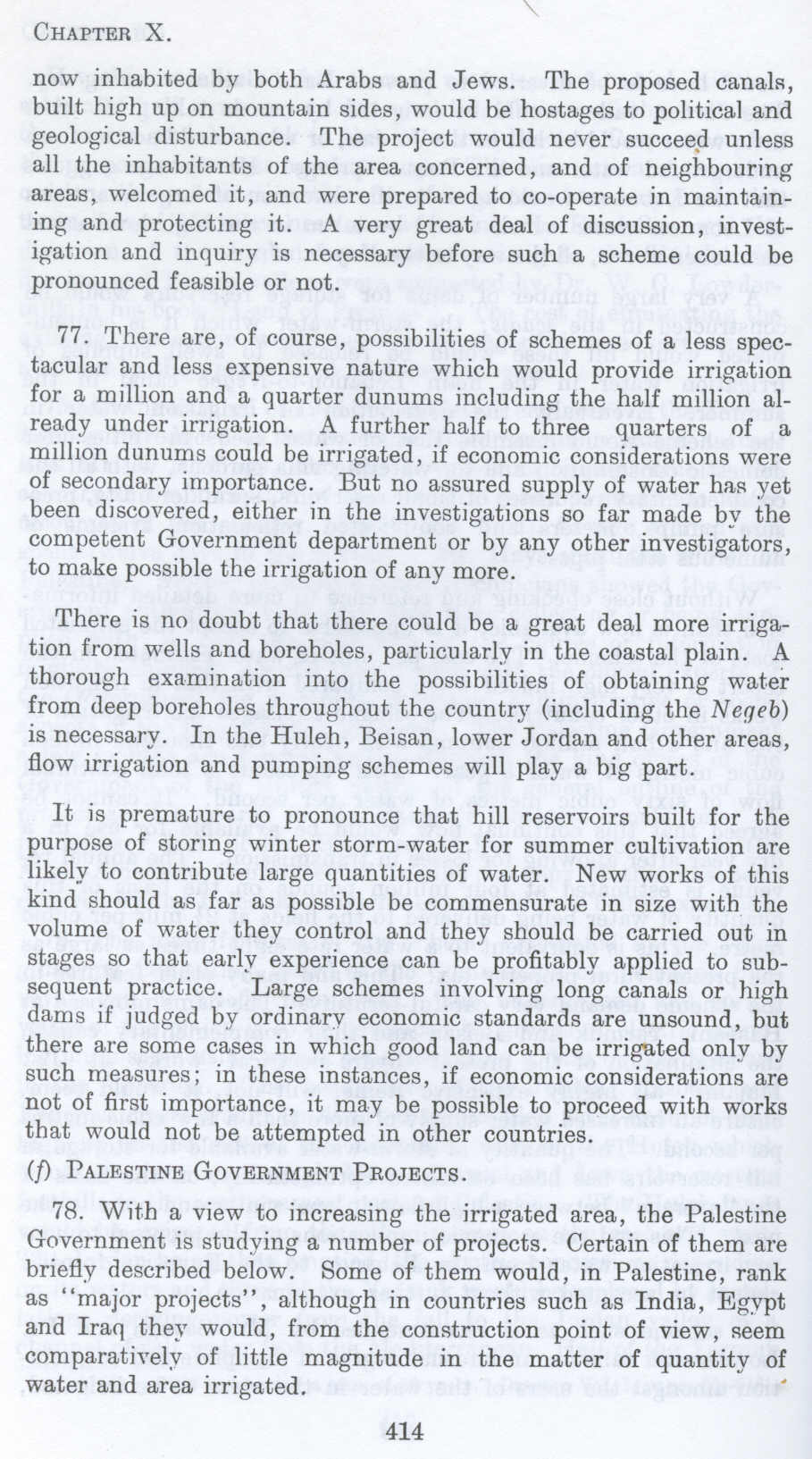| Prev | Next |  |
| Prev | Next |
| PalestineRemembered | About Us | Oral History | العربية | |
| Pictures | Zionist FAQs | Haavara | Maps | |
| Search |
| Camps |
| Districts |
| Acre |
| Baysan |
| Beersheba |
| Bethlehem |
| Gaza |
| Haifa |
| Hebron |
| Jaffa |
| Jericho |
| Jerusalem |
| Jinin |
| Nablus |
| Nazareth |
| Ramallah |
| al-Ramla |
| Safad |
| Tiberias |
| Tulkarm |
| Donate |
| Contact |
| Profile |
| Videos |
British Mandate: A Survey of Palestine: Volume I - Page 414 |
Disclaimer
The above documents, article, interviews, movies, podcasts, or stories reflects solely the research and opinions of its authors. PalestineRemembered.com makes its best effort to validate its contents.


Post Your Comment
*It should be NOTED that your email address won't be shared, and all communications between members will be routed via the website's mail server.
now inhabited by both Arabs and Jews. The proposed canals, built high up on mountain sides, would be hostages to political and geological disturbance. The project would never succeed unless all the inhabitants of the area concerned, and of neighbouring areas, welcomed it, and were prepared to co-operate in maintaining and protecting it. A very great deal of discussion, investigation and inquiry is necessary before such a scheme could be pronounced feasible or not.
77. There are, of course, possibilities of schemes of a less spectacular and less expensive nature which would provide irrigation for a million and a quarter dunums including the half million already under irrigation. A further half to three quarters of a million dunums could be irrigated, if economic considerations were of secondary importance. But no assured supply of water has yet been discovered, either in the investigations so far made by the competent Government department or by any other investigators, to make possible the irrigation of any more.
There is no doubt that there could be a great deal more irrigation from wells and boreholes, particularly in the coastal plain. A thorough examination into the possibilities of obtaining water from deep boreholes throughout the country (including the Negeb) is necessary. In the Huleh, Beisan, lower Jordan and other areas, flow irrigation and pumping schemes will play a big part.
It is premature to pronounce that hill reservoirs built for the purpose of storing winter storm-water for summer cultivation are likely to contribute large quantities of water. New works of this kind should as far as possible be commensurate in size with the volume of water they control and they should be carried out in stages so that early experience can be profitably applied to subsequent practice. Large schemes involving long canals or high dams if judged by ordinary economic standards are sound, but there are some cases in which good land can be irrigated only by such measures; in these instances, if economic considerations are not of first importance, it may be possible to proceed with works that would not be attempted in other countries.
(f) PALESTINE GOVERNMENT PROJECTS.
78. With a view to increasing the irrigated area, the Palestine Government is studying a number of projects. Certain of them are briefly described below. Some of them would, in Palestine, rank as "major projects", although in countries such as India, Egypt and Iraq they would, from the construction point of view, seem comparatively of little magnitude in the matter of quantity of water and area irrigated.
Page 414